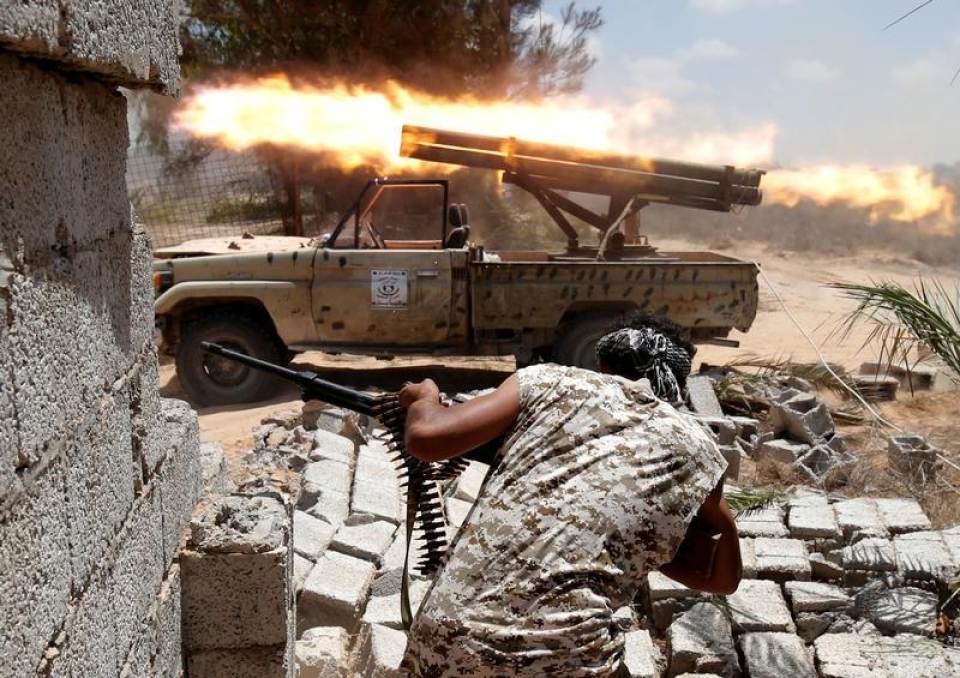Cairo- “Liberated Sirte”, “Wilaya of Tripoli”, “Soldiers of Caliphate in Libya” are samples of names that have disappeared from social media pages of ISIS in Libya.
Observers from Misrata say that the propaganda ISIS used to launch through social media and internet has remarkably declined after its defeat in Sirte.
During their capture of ISIS’ strongholds in Sirte, Libyan forces of the Government of National Accord found laptops, smartphones and cameras, which were used by the extremist organization to spread its thoughts and to promote its intellect and achievements through internet not only in Libya, but also across the world in different languages.
A military investigator from Misrata said that after destroying ISIS’ communication centers in Sirte and seizing all its equipment, the organization’s propaganda on the internet has decreased, leaving the group with the option of using websites and pages in Syria and Iraq to cover its news.
Many forces supported by the United States and operating under the leadership of Fayez Al-Sarraj have broken into the city of Sirte and the sites ISIS used to control. They were able to confiscate more than 50 laptops and smartphones with several instant messaging programs uploaded on them.
According to investigations, ISIS used programs like Viber, WhatsApp Messenger, You Tube, and Telegram during its control of the city. One of the folders found after the break comprised religious lectures and speeches for the alleged Caliphate Abu Bakr al-Baghdadi and his spokesperson Mohammad Al-Adnani.
Investigations have also shown that many Libyan and foreign people were cooperating with the organization after its control of Sirte. The investigator from Misrata says that many merchants who used to transport relief and food aid among Libyan regions were obliged to pass by ISIS checkpoints and to give up shares of the provisions they were loading.
The government armed forces have recaptured the building of ‘Sirte’s radio” in the past month; national and foreign investigators (most of them from the United States and the United Kingdom) have participated in the post-liberation inquisitions.
Some of the videos feature leaders of ISIS ordering militants to kill people who refused to surrender in public squares.
A source from Tripoli has revealed to Asharq Al-Awsat that some ISIS-related documents concerning its links with sleeping cells and its communications in Libya and abroad have been moved out of the country during the past two weeks; however, many documents have been kept in Benghazi.
It is worth mentioning that following the liberation of Sirte, ISIS has admitted its defeat against the forces supported by the government in the city through its news outlets like Dabiq Agency and al-Naba newspaper.
ISIS has heavily attacked militias and factions which were supposed to back it in Libya. It has also threatened the leaders of factions that cooperated with the government, the parliament and the Presidential Council.
